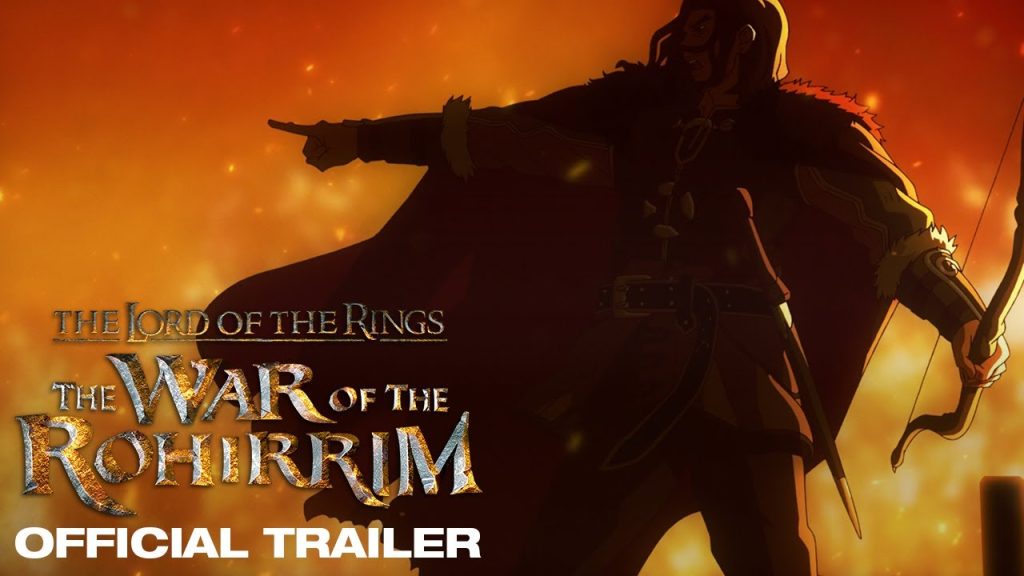In the pantheon of epic films, “Spartacus” stands as a towering testament to the power of cinema to shape our perceptions of history and heroism. Released in 1960, this classic film not only broke ground with its bold storytelling and sweeping visuals but also captured the imagination of audiences worldwide. Directed by Stanley Kubrick and starring Kirk Douglas, “Spartacus” offers a compelling look at the life of an enslaved gladiator who became a symbol of freedom against oppressive forces.
As viewers revisit the sands and struggles of ancient Rome through this cinematic lens, they often find themselves reflecting on themes of justice, power, and resistance that remain resonant today. The film’s ability to blend spectacular action with deep emotional connections makes it a perennial favorite and a crucial study for enthusiasts of film history. Join us as we delve into the enduring legacy of “Spartacus,” exploring what makes this classic a must-watch and how it continues to influence modern filmmaking.
Plot Overview
“Spartacus” is an epic historical drama that narrates the life of Spartacus, a Thracian gladiator who rises up against the Roman Republic as the leader of a slave uprising. Despite his humble beginnings, his quest for freedom leads to a mass revolt that threatens the power structures of ancient Rome. The film adeptly combines elements of romance, tragedy, and heroism, weaving a complex narrative that challenges the social orders of the time and champions the human spirit against all odds.
Cast and Characters
The film is driven by stellar performances, particularly by Kirk Douglas in the titular role of Spartacus, whose powerful portrayal of determination and leadership anchors the storyline. Laurence Olivier delivers a compelling performance as the cunning Roman general and politician Crassus, who is Spartacus’s formidable adversary. Jean Simmons shines as Varinia, Spartacus’s love interest, providing a tender counterpart to the film’s harsh battlegrounds. The ensemble cast, including Charles Laughton, Peter Ustinov, and John Gavin, all deliver performances that enrich the narrative and underscore the diverse personalities involved in the Spartacus saga.
Set and Costume Design
“Spartacus” features extravagant set designs and authentic costumes that effectively recreate the grandeur and the grit of ancient Rome. The set pieces, ranging from the opulent Roman villas to the rugged gladiator training grounds, are crafted with meticulous attention to historical accuracy. Costume designer Valles brings the period to life with a mix of lavish Roman togas and rustic slave garments, visually contrasting the worlds of the ruling elite and the enslaved people. Each visual element, from the sprawling landscapes of the Roman countryside to the intricate details of the Senate, plays a pivotal role in immersing the audience into the historical epoch the film depicts.
Viewing Experience
“Spartacus” offers viewers an engrossing cinematic journey that is both visually stunning and emotionally stirring. The film’s user experience continues to captivate audiences, proving its lasting appeal and relevance in cinematic history.
Visual Impact
The visual spectacle of “Spartacus” is one of its most compelling attributes. Stanley Kubrick’s direction brings forth a canvas that showcases vast Roman landscapes and epic battle scenes filled with meticulously organized armies clashing in unison. The authenticity of the set design, combined with the use of Technicolor, transports viewers directly into the heart of ancient Rome. The grandeur of the gladiatorial arenas, replete with rich, vibrant colors and detailed costumes, creates a visual feast that not only commands attention but also enhances the storytelling. As a result, the film’s aesthetic elements play a crucial role in the overall experience, leaving a lasting visual imprint on the viewer.
Emotional Engagement
The emotional core of “Spartacus” is deeply woven into its narrative, engaging viewers on a profound level. Kirk Douglas’s portrayal of the titular character embodies a raw and visceral fight for freedom that resonates universally. His struggles and eventual rise as a leader of a slave revolt elicit feelings of empathy, outrage, and inspiration. The relationships between characters, such as the poignant romance between Spartacus and Varinia, further enrich the emotional landscape of the film. These relationships provide a human context to the larger themes of oppression and rebellion, making the historical epic not only a tale of political upheaval but also a heartfelt story of love and personal sacrifice. The emotional depth of the film ensures that its impact goes beyond the visual, striking a chord with audiences that lingers long after the credits roll.
Performance
“Spartacus” not only stands out for its epic storytelling and powerful themes but also for the remarkable performances and skillful direction that drive its narrative. This section delves into the acting and direction, showcasing how these elements significantly contribute to the film’s critical and lasting success.
Acting
The acting in “Spartacus” is universally acclaimed, anchored by Kirk Douglas’s powerful portrayal of the titular character. His performance brings a compelling mix of raw physicality and nuanced emotion, making Spartacus not just a rebellious hero but a deeply relatable human being. Laurence Olivier, as the cunning and ruthless Crassus, provides a perfect foil with his refined yet menacing presence, creating a dynamic tension critical to the film’s dramatic impact. Jean Simmons, portraying Varinia, adds a layer of emotional depth and grace, counterbalancing the brute force of the gladiatorial scenes with tenderness and strength. The cast’s ability to convey such complexity offers a timeless appeal, allowing the audience to connect deeply with each character’s journey.
Direction
Under Stanley Kubrick’s meticulous direction, “Spartacus” transforms from a simple historical epic to a profound cinematic achievement. Kubrick’s visionary approach is evident in his handling of the vast scope of the film, from sprawling battle scenes to intimate character moments. His use of wide-angle shots and careful composition elevates the visual storytelling, while his attention to historical detail immerses viewers fully into the brutal world of ancient Rome. Kubrick challenges his actors to extract performances that are emotionally rich and varied, further enhancing the film’s psychological complexity. Despite facing significant studio pressures and constraints, Kubrick’s leadership in “Spartacus” remains a pivotal example of his early directorial prowess and his capacity to shape a compelling narrative through a combination of strategic craftsmanship and bold artistic vision.
Pros
“Spartacus” remains a monumental achievement in film, celebrated for its meticulous attention to historical detail and sweeping narrative. These aspects not only distinguish it within its genre but also contribute significantly to its lasting legacy in cinema.
Historical Accuracy
“Spartacus” is widely appreciated for its commitment to historical accuracy, making it stand out in Hollywood’s often dramatized portrayals of ancient history. The film meticulously recreates the politics, social dynamics, and even the military strategies of the Roman Republic era, giving audiences a palpable sense of time and place. This accuracy extends to the costumes and set designs, which were crafted based on extensive research, thereby adding an additional layer of authenticity to the film. This dedication to realistic details helps the audience immerse themselves fully in the world that Spartacus lived in, enhancing the overall credibility and educational value of the film.
Epic Storytelling
The film’s narrative structure is epic not only in scale but also in its deep emotional and thematic explorations. “Spartacus” combines the personal journey of its hero with broader themes of freedom, oppression, and tyranny, resonating with audiences across different eras. The story unfolds through grand set pieces and massive battle scenes that convey the scale of the uprising, while intimate moments between characters provide emotional stakes that engage the viewer’s empathy and investment in the story. This balance between the grandiose and the personal amplifies the film’s dramatic impact, making its storytelling both captivating and memorable.
Cons
While “Spartacus” is lauded for its epic storytelling and powerful themes, there are aspects of the film that may not appeal to all audiences, particularly regarding its pacing and length.
Pace of the Film
“Spartacus” showcases a narrative that, while grand, can sometimes feel slow to modern viewers. The film takes its time to develop intricate plot points and build its characters, which contributes to a methodical pace not commonly favored in contemporary cinema. This slower pacing might challenge viewers accustomed to the quick cuts and rapid progression of today’s action movies. The director Stanley Kubrick’s meticulous attention to detail is evident, but it also means that the film demands patience, as significant time is dedicated to exploring the political and social contexts of Spartacus’s uprising.
Length of the Movie
Clocking in at over three hours, “Spartacus” can be a daunting undertaking for many moviegoers. Its lengthy runtime is necessary to cover the extensive storyline and fully develop its characters, yet it might deter those looking for a more concise cinematic experience. The film’s duration includes lengthy sequences of dialogue and battle scenes that, while impressive, contribute to a greater time commitment than typical for most films. For audiences with a preference for tighter narratives, the expansive length of “Spartacus” could impact their overall viewing experience.
Comparison
When placed alongside other epic films of its era, “Spartacus” emerges not only as a monumental cinematic piece but also as a trailblazer in its genre.
Spartacus vs. Other Epic Films of Its Era
“Spartacus” stands distinct among its contemporaries like “Ben-Hur” and “Cleopatra” through its unique blend of narrative depth, historical context, and emotional engagement. Notably, “Ben-Hur” released in 1959, focuses on personal redemption set within a sprawling historical backdrop, renowned particularly for its chariot race scene. In contrast, “Spartacus” delves deeper into themes of freedom and social injustice, driven by its gritty representation of slave life and a more overt political commentary.
Meanwhile, the 1963 film “Cleopatra” centers on the legendary queen’s influence over Roman politics, which, while grand in scale and rich in visual splendor, arguably lacks the intimate human touch that “Spartacus” so effectively harnesses through the personal rebellions of its characters. Where “Cleopatra” leverages Elizabeth Taylor’s star power in a dramatic tale of political intrigue, “Spartacus” uses Kirk Douglas’s commanding performance to draw viewers into a profound narrative about the fight against oppression.
Thus, “Spartacus” not only distinguishes itself by the strength of its character-driven storytelling but also sets a benchmark for balancing large-scale set pieces with deep, emotive human stories.
Legacy
Spartacus has stood the test of time, continuing to captivate audiences with its formidable blend of historical epic and emotional drama. Now, we turn to how contemporary audiences and critics perceive and interact with this classic film.
Viewer Ratings and Reactions
Viewer ratings for “Spartacus” are markedly high, underlining its status as a perennial favorite. On popular platforms like IMDb and Rotten Tomatoes, the film maintains impressive scores, reflecting a broad appreciation for its artistic and thematic depth. Critics and audiences laud the film for its stirring narrative and powerful performances, particularly praising Kirk Douglas’s portrayal of the titular character. However, some modern viewers find the pacing somewhat sluggish compared to contemporary cinematic styles, which tend to favor faster storytelling. This contrast in viewer expectations showcases the evolving nature of audience engagement with film across different eras. Despite this, the emotional resonance and historical authenticity of “Spartacus” continue to draw praise, securing its place in the canon of classic cinema.
Conclusion
“Spartacus” stands as a monumental piece of cinematic history that continues to captivate and inspire audiences around the world. Its blend of epic storytelling, profound themes, and visual grandeur makes it a timeless classic. Despite its lengthy runtime and slower pace, the film’s ability to weave complex narratives with deep emotional undercurrents offers a rich viewing experience. As it continues to be celebrated for its artistic achievements and emotional depth, “Spartacus” remains a vital part of film discussions, illustrating the power of cinema to reflect and shape societal values. Whether it’s the stirring performances or the grandiose set pieces, this classic film holds a special place in the hearts of moviegoers, proving that great stories are indeed timeless.



 RELATED POSTS
RELATED POSTS





0 Comments